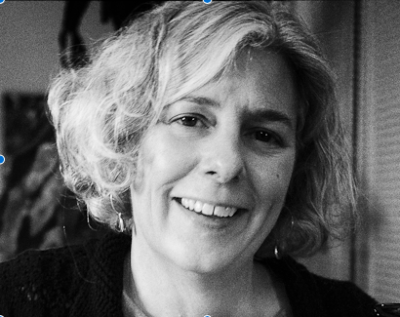
(5-30-19)
Dear Pete,
As I read your blog piece on Assisted Outpatient Treatment, I asked myself, what are we committing people living with serious mental illness to?
And why wouldn’t we start with practices that promote engagement, and offer people help that they find meaningful?
I am a clinical social worker who worked in a specialty clinic for people with psychotic disorders for 17 years. I’ve been involved with clinical training and education of mental health professionals for 24 years, in academic psychiatry and social work.
In my clinical practice, I provided psychosocial assessment, individual and group psychotherapy, clinical case management, and family support and psycho-education.
Throughout my career, I’ve always promoted the use of evidence-based practices that focus on engagement and recovery for people living with severe mental illness. These include family psycho-education, which I call the forgotten evidence-based practice. It is not the same as the National Alliance on Mental Illness’s Family to Family program.
It’s engagement of the whole family in treatment, at a level the person with the illness is comfortable with. It is emotional support, education, and skills training.
North Carolina Mental Health Care System Destroyed
In North Carolina, I’ve watched the destruction of a pretty good community mental health system. Our state legislators privatized the system in the mid-2000s, fragmenting it, and making it nearly impossible for new providers to make the business model work, especially for outpatient clinics – the primary care of mental health. Now it is a mental health system for people who have Medicaid, in a state that did not expand Medicaid. The route to Medicaid for an adult is through Social Security disability. A person must be ill for at least a year before becoming eligible, and must have medical documentation to support the application. If you can’t access care, it’s hard to have the medical evidence for disability.
People are on their own to navigate this complex system – the responsibility often falls to families.
In 2011, the state eliminated a basic service of case management for people with mental health and substance use disorders.
Case management was core to my social work practice — it was the practical help that made sure that people had housing, access to treatment, food assistance, and meaningful work and activity. They replaced the service with care coordination at the new quasi-public managed care organizations. This was an insurance function, designed to find the high cost recipients and to work to reduce their cost to the system.
When the state eliminated a basic case management service, I got a grant to do a pilot of Critical Time Intervention in the county where I worked– an intensive case management model timed around transitions.
It was originally developed for people with chronic mental illness who experienced homelessness, delivered at the time they moved into housing. It’s also been used for other transitions, including hospital to community. It has an evidence base of reducing hospital days and days of homelessness. It’s focused on engagement and practical help, including engagement in treatment. It works. And it’s not promoted by Substance Abuse and Mental Health Services Administration. In fact, it’s one of the evidence-based practices that was removed from SAMHSA’s website. The current resource list for evidence-based practices is sparse, overly focused on the criminal justice system, and offers little to people who are working on the ground.
It’s alarming to me to see this switch to promotion of coercion.
I understand that involuntary commitments are sometimes necessary. But in my clinical experience, which is pretty extensive — I’ve worked with hundreds of people with psychotic disorders over my career — I have often seen it backfire, and destroy the human spirit of people living with severe mental illness. Engagement gets us much further, and meeting people’s basic needs. Yes, we need a social welfare system, and affordable housing, if we are to serve people living with severe mental illness well. Those things are eroding at a precipitous rate.
In 2005, I was involved with the development of the first early psychosis program in North Carolina. This was exciting work. And it wasn’t all that new – it was simply including all the psychosocial models that had been previously developed. We designed the program to be youth-friendly, and originally modeled the program on what we saw in the international mental health community. We worked hard to avoid hospitalization, and to help young people get their lives back on track. Psychotherapy and family work were key. Medication management was rooted in principles of shared decision making.
It’s great that the coordinated specialty care model is expanding – but the uptake is slow. And the eligibility criteria are very narrow, excluding many who could benefit from this type of intensive clinic and community-based service.
Another model that is not coercive that we should be promoting: the clubhouse model. Even Dr. E Fuller Torrey (a proponent of AOT) supports this model. Clubhouses are rooted in the idea that relationship, community and work support recovery. Many clubhouse model programs also have supportive housing attached. And they provide nutritious meals – if you are living on $750 month, this is a real benefit. A key principle of the model: it’s voluntary. And members living with severe mental illness work side by side with staff. Peer run centers offer similar benefits.
The last person I worked with who was given an outpatient commitment after a hospital stay rented a car and drove across the country. We would be foolish to think that we can control people in this way. I don’t understand why we don’t offer treatment and services that people actually want. Last year, I spent a day training at one of our state hospitals in North Carolina. The staff appreciated my talks, but told me that the evidence-based practices that I described simply weren’t available in their patients’ home communities. Why don’t we require state authorities and county governments to actually serve their vulnerable citizens? And why don’t we start with treatment and services that we know work, and that people actually want?
The overemphasis on coercive care is dehumanizing people who live with severe mental illness. I fear that we are heading back to the dark ages in our mental health system. It frankly breaks my heart.
Bebe Smith, MSW, LCSW Durham, North Carolina




